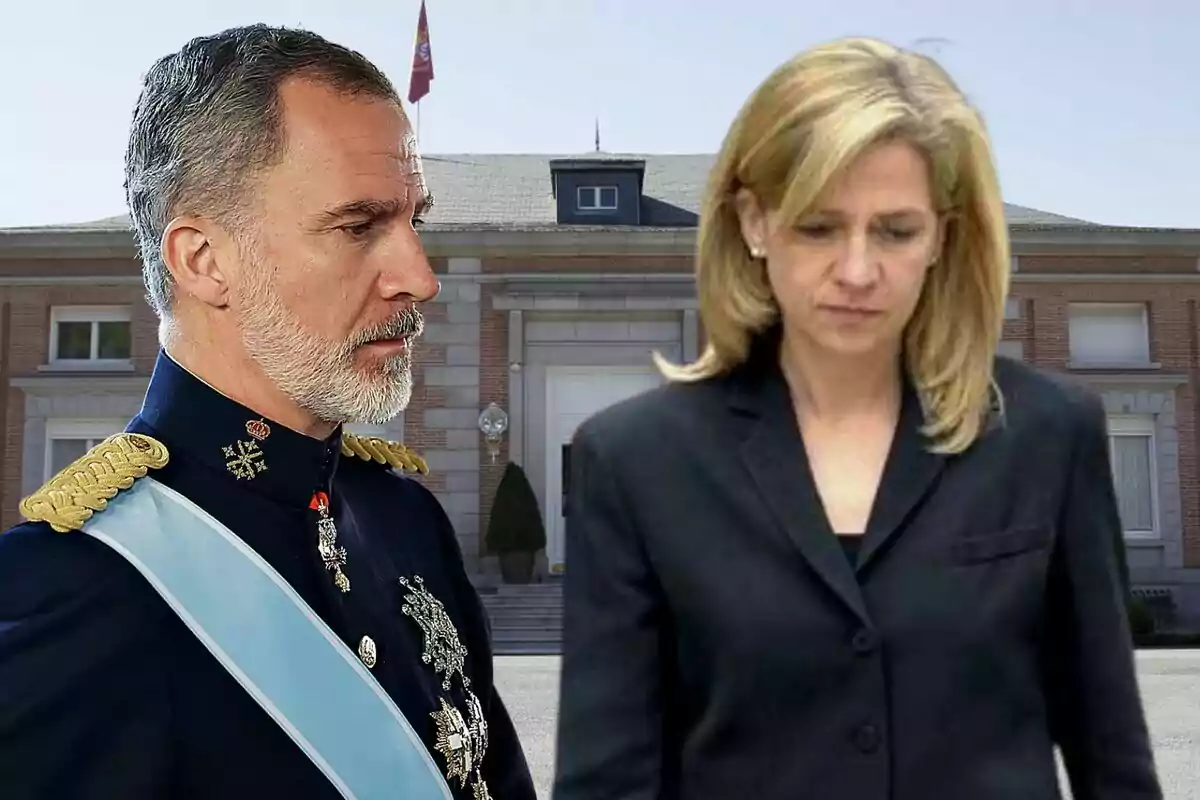The distance between King Felipe VI and Infanta Cristina has reached a new critical point. The past few weeks have brought subtle but revealing movements in Zarzuela, where gestures speak louder than words. However, behind that institutional silence lies a mix of old wounds and new chapters filled with expectation.
A rift rekindled by the recent past
The tension between the two siblings isn't extraordinary, but it has never been insignificant either. Since the outbreak of the Nóos case in 2011 and the ensuing judicial controversy, Cristina was excluded from the family core and stripped of the title Duchess of Palma. That distancing deepened the resentment. Cristina feels that Felipe didn't defend her enough and that the push came from Letizia. This wound has been a scar, but never a closed one.
Iñaki Urdangarin, the unexpected trigger
The announcement that Iñaki Urdangarin, her ex-husband, is preparing a book focused on his experience in prison and his path to rehabilitation has been fuel for the fire. In Zarzuela, they watch him with suspicion: they fear he could reveal sensitive information, even about Felipe VI. The fear grows knowing he might make references to the emeritus Juan Carlos I and suggest that Cristina encourages him to continue with the memoirs of the emeritus king. That current translates into a new wave of distrust between the siblings.

Pilar Eyre exclusive: hidden empathy
Journalist Pilar Eyre has highlighted a little-publicized side of Cristina: far from being cold with Iñaki, she defends and protects him, speaking well of him to their children. That attitude contrasts with Felipe's strategic silence, who keeps the institutional distance firm. Meanwhile, Cristina finds in this emotional closeness a space of loyalty to her family, in contrast to the rigid protocol policy.
Echoes of pressure in Marivent
The discomfort extends beyond the intimate circle. The Urdangarin family remain banned from Marivent, the summer residence of the king and his daughters. Letizia doesn't look favorably on her daughters meeting with their cousins; according to sources close to the family, Cristina blames Felipe for not defending them. A clear disparity is evident here: while Elena and Cristina show unity around Juan Carlos, the king defends the institution above informal bonds.

Visible effects in public and private events
In recent official events, the absence of encounters between Cristina and Felipe has been noticeable. According to those close to them, they don't exchange words either in the photocalls or in the hallways of family or institutional events. That logic of silence indicates that the rift isn't just personal, but a conscious gesture that speaks of limits imposed by protocol.
Toward a growing and difficult-to-repair fracture
Infanta Cristina and her sister Elena could become family blocs opposed to the king's stance. He faces the institutional logic and his duty to keep an impeccable image. Although the conflict isn't new, its visibility is. The lack of public appearances of Felipe with his two sisters and their explicit support for their emeritus father foreshadow a fracture that, if not moderated, could worsen.

